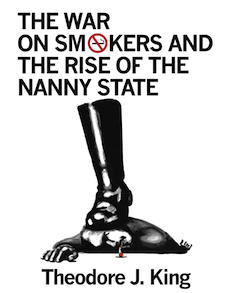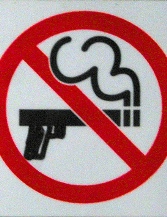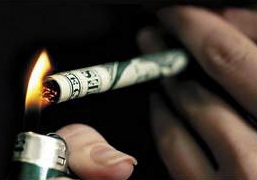Stogie Guys Friday Sampler No. 480
20 May
As we have since July 2006, each Friday we’ll post a mixed bag of quick cigar news and other items of interest. Below is our latest Friday Sampler.

1) The Bianco Boxer is coming to Omar de Frais’ Fratello Cigars. The cigar will start with a soft launch at ten retailers, then roll out nationally in conjunction with the IPCPR Trade Show in Las Vegas this summer. It will retail for $10 and be offered in a single box-pressed, torpedo-shaped format (6.25 x 52). “Similar to the Fratello Boxer, we modified the filler blend in the Bianco Boxer to highlight a different flavor profile from its Father, the Fratello Bianco,†said de Frias. “One of our goals with The Boxer line is to show our consumers how modifying the ratio of filler tobacco can change the profile in a cigar.†The Bianco Boxer will feature a San Andrés Negro wrapper, Dominican binder, and filler tobaccos from Pennsylvania, Nicaragua, and Peru.
2) Fred Rewey’s Nomad Cigar Co. has released the SA-17, a sister blend to the C-276. It is the seventh full-production Nomad cigar from Tobacalera A.J. Fernandez in EstelÃ. “I love working with tobacco at A.J. Fernandez’s factory,†said Rewey. “Ask anyone around, he has amassed some of the best-aged, most diverse, quality tobacco. For me, blending is a creative process. It is nice to have that home in Estelà to blend and experiment.†The SA-17 comes complete with a San Andrés wrapper around Nicaraguan binder and filler tobaccos. Prices on the four vitolas—Robusto (5 x 50), Coronita (5.5 x 46), Toro (6 x 50), and Shorty (4 x 56)—range from $8.50 to $9.75.
3) Inside the Industry: Davidoff is adding a second blend to its successful AVO Syncro brand, which was released last year. The AVO Syncro Fogota will ship next month. The four-size line (MSRP $8.90-$11.90) sports an Ecuadorian Habano 2000 Clara wrapper, San Andrés binder, and fillers tobaccos from Nicaragua and the Dominican Republic.
4) From the Archives: In light of the recently announced FDA regulations cracking down on cigars, readers might want to revisit a 2010 interview we conducted with Ted King, author of The War on Smokers and the Rise of the Nanny State, which economist and syndicated columnist Walter E. Williams described as “not only a story about the attack on tobacco users, but a story about how decent Americans can be frightened, perhaps duped, into accepting phony science, attacks on private property rights, and rule of law. One need not be a smoker to be alarmed by the underlying hideousness of the anti-tobacco movement.”
5) Deal of the Week: Kiss My Ash Radio and Smoke Inn have unveiled a line of anti-FDA T-shirts so cigar smokers can wear their displeasure with the FDA’s oppressive regulations. The shirts sell for just $12.50 each. Proceeds benefit Cigar Rights of America’s efforts to defend cigar freedom.
photo credit:Â Fratello Cigars


 Regular readers will recall that, over the years, we’ve written a great deal about the lamentable spread of state and local smoking bans. While my colleagues and I try to keep our web magazine focused more on tobacco and less on politics, some issues—predominantly taxes and bans—cannot and should not be avoided.
Regular readers will recall that, over the years, we’ve written a great deal about the lamentable spread of state and local smoking bans. While my colleagues and I try to keep our web magazine focused more on tobacco and less on politics, some issues—predominantly taxes and bans—cannot and should not be avoided. In a
In a  Patrick Ashby
Co-Founder & Editor in Chief
Patrick Ashby
Co-Founder & Editor in Chief Patrick Semmens
Co-Founder & Publisher
Patrick Semmens
Co-Founder & Publisher George Edmonson
Tampa Bureau Chief
George Edmonson
Tampa Bureau Chief